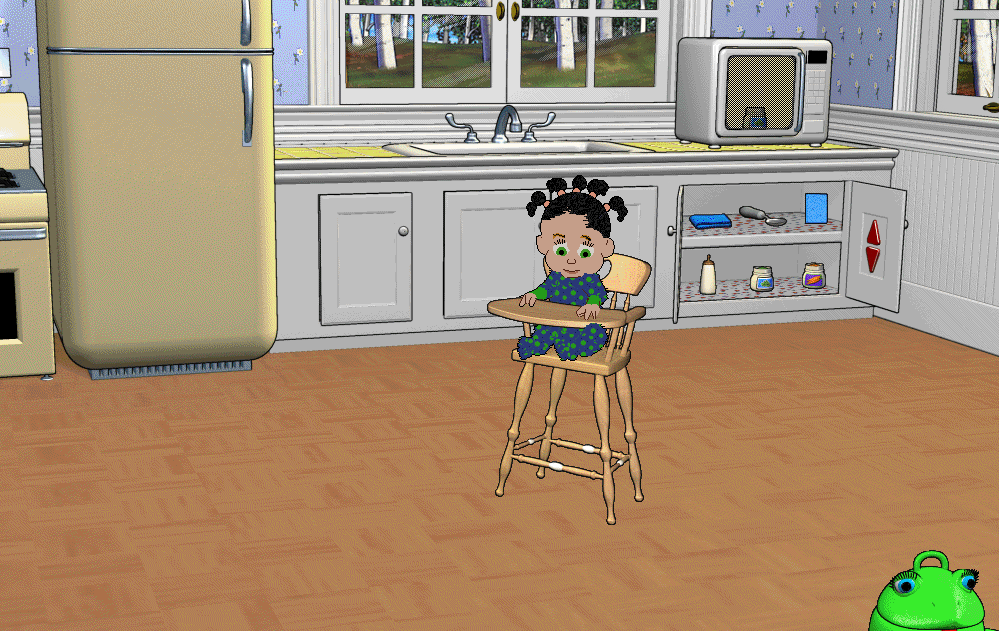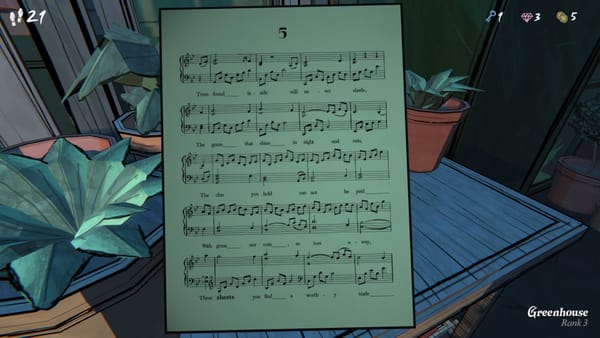Bad Endings
on portals, stoicism, and being too soft for my own good
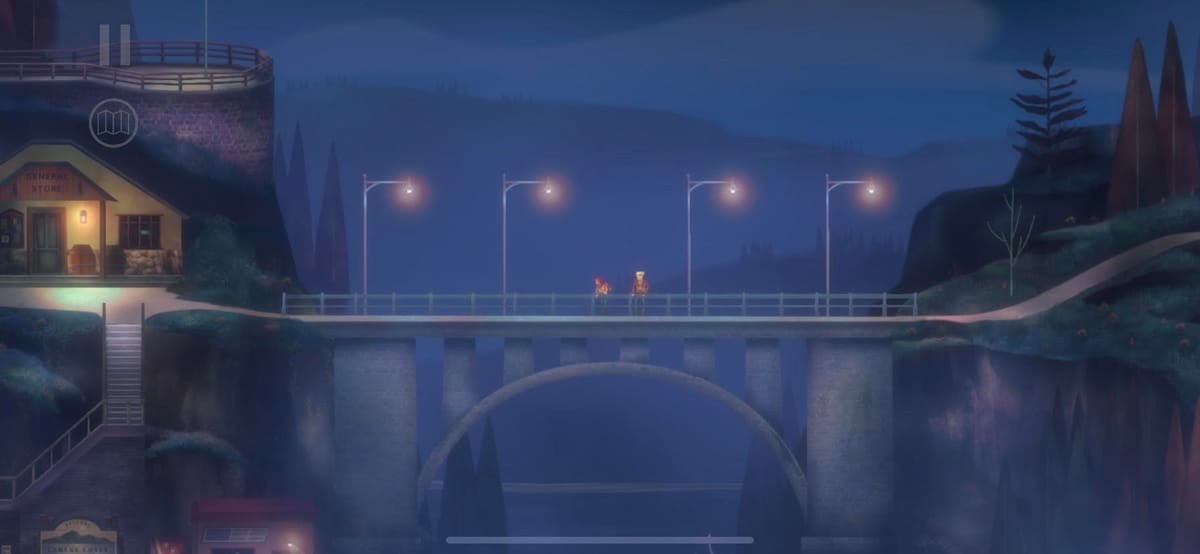
(We’re talking about endings today: of Oxenfree II, Life is Strange: True Colours, and Silent Hill: Homecoming. I don’t go into specific detail about the actual endings, rather the events leading up to them. Consider yourself warned in terms of spoilers!)
Oxenfree II is the first game I've played in a while where I felt my dialogue decisions mattered. The flow of the conversation felt remarkably natural: apart from a few awkward moments, usually caused by me interacting with an object with Jacob mid-sentence, it felt like a genuine back-and-forth, Jacob's nervous chatter perfectly complimenting Riley's quiet, steady presence.
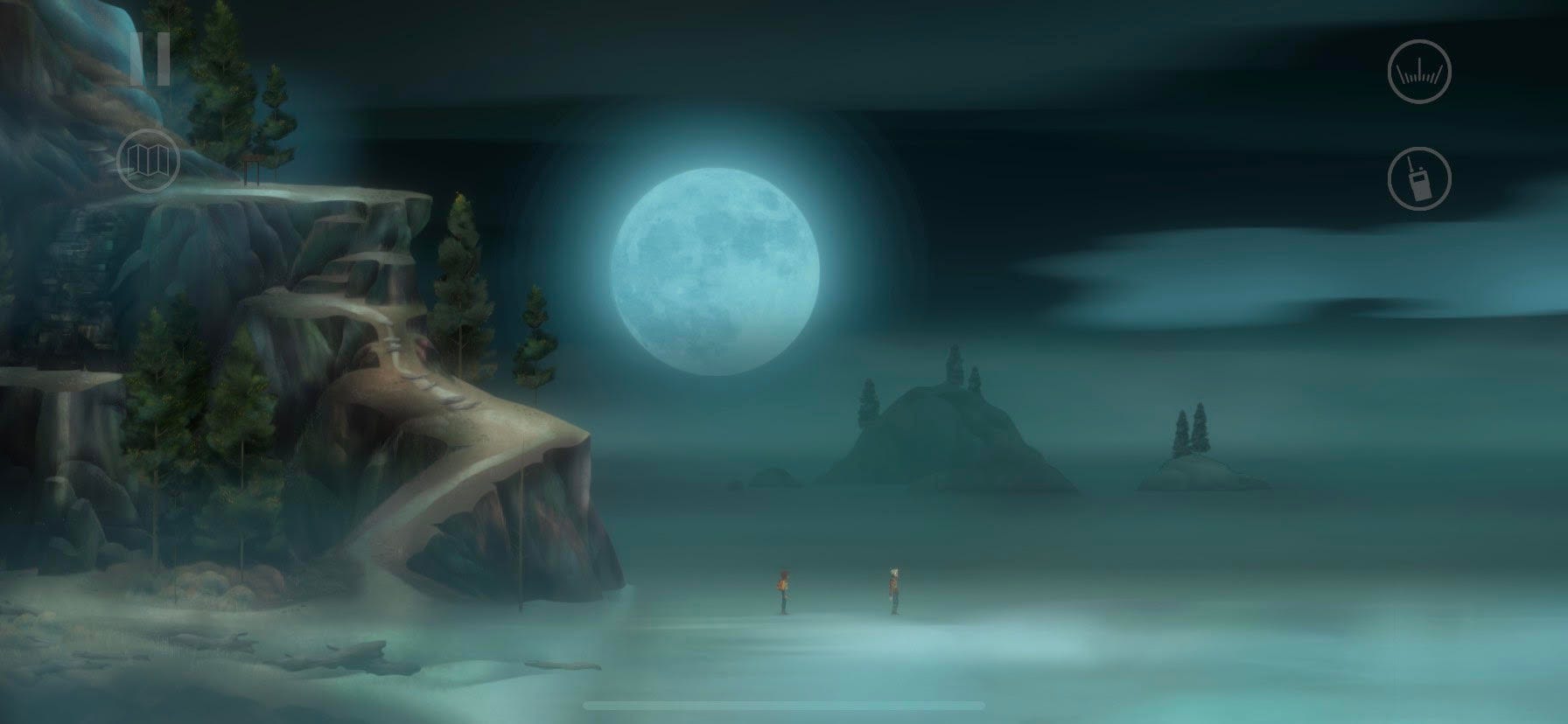
Riley is as mysterious as a videogame protagonist needs to be: to a certain extent, a blank page, or at least a page clear enough for the player to imprint some of their own ideas. I always felt she had a backstory that I couldn't quite unlock, a secret life that I wasn't sure I'd ever be privy to. Even after hours of controlling her, forcing her to run and jump and scramble across Camena, I felt I didn't know who she was, not really. Even my own dialogue decisions surprised me: I'd pick an answer (usually the kindest possible response to Jacob, whom I immediately fell in love with), and her tone of voice would put an entirely different spin on it. She'd be funny in moments I wasn't expecting her to be, or wistful, with a kind of heaviness that suggested she was thinking about something I didn't know about.
So when Riley announces her pregnancy to Jacob, the surprise of it makes sense. She's guarded, she keeps things close to her chest, even from the player. It keeps you on your toes, you know? Thinking as Riley is tricky. And making decisions as Riley is even trickier.
When I was a teenager, I was heavily into Buffy the Vampire Slayer. My middle sister, in an attempt to bond with me, watched it too. She lived far away, and she’d call me as soon as she watched the newest episodes for a debrief. I still remember her calling me in floods of tears after catching up with the season five finale episode, The Gift.
Me: (thinking something terrible had happened) ‘Lisa? What? What is it?’
Her: ‘I’d -’ (helpless sobbing) ‘I’d - throw myself into a - a portal for you!’
I am very lucky to have a sister who would fling herself into the opening of the Hellmouth to save my life. I think my eldest sister, Tracey, would probably do it too. I’d do it for them! Luckily, we don’t live in a world where this kind of situation crops up very often, but, you know, it’s nice to know we have each other’s backs.
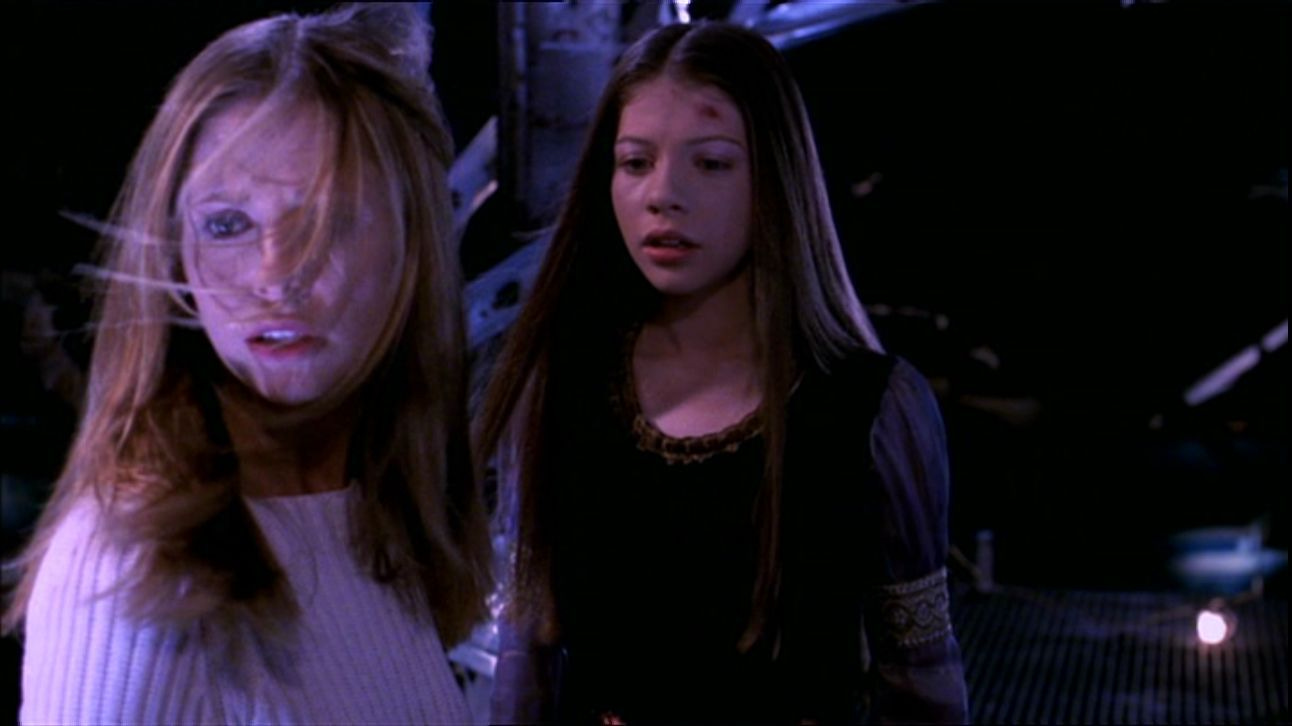
Why am I talking about this? Oh yes. That’s what popped into my mind when I found myself in the closing moments of Oxenfree II. If you’re reading this, I presume you’ve played it, or you’re just the kind of person who likes to spoil things for themselves by reading the plot of movies on Wikipedia or skipping to the last page of a book. I’m not judging, necessarily. But as a quick recap, just in case, someone has to stay behind to lock a portal in case the haunted beings known as The Sunken might escape. Inside the portal is the void: an endless looping version of reality.
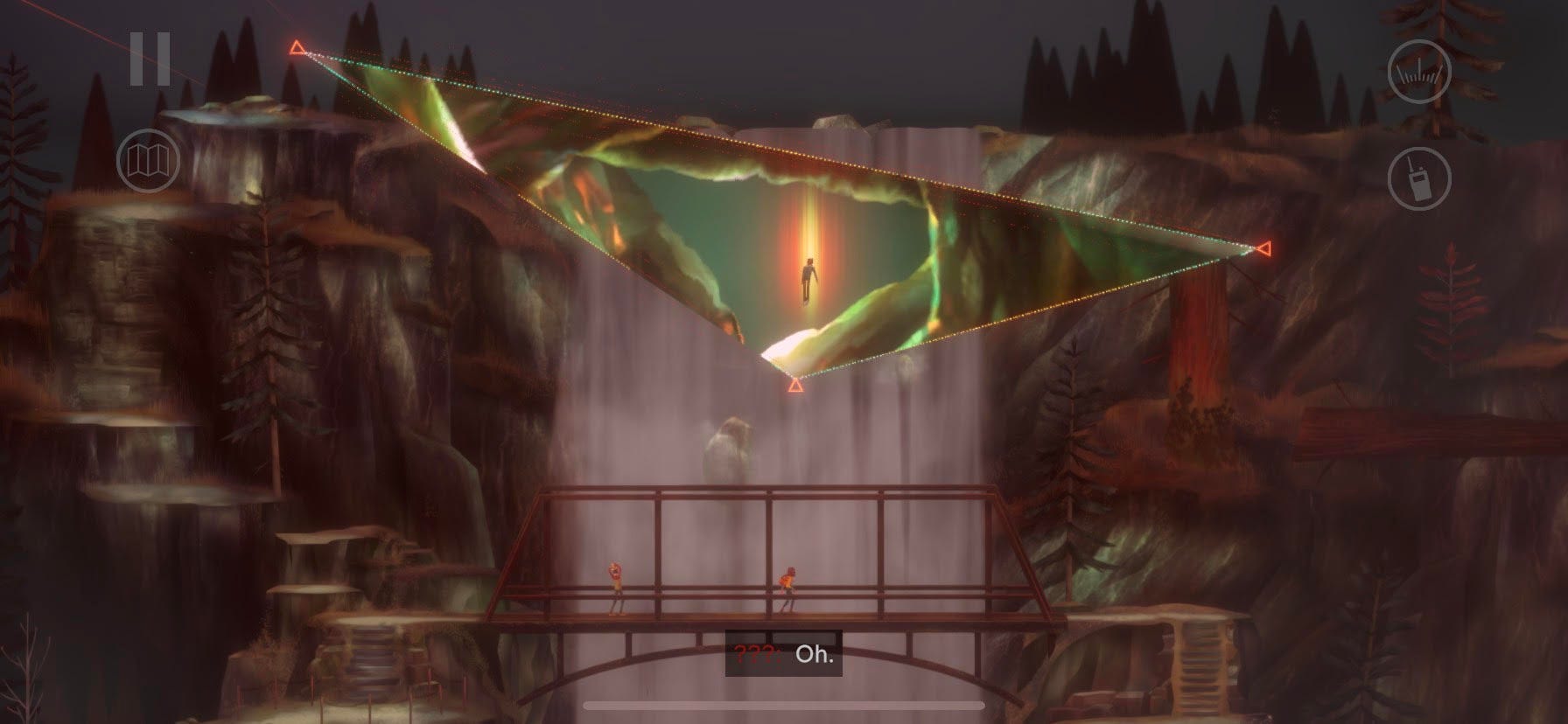
Quickly, it dawned on me that a horrible decision would have to be made. Amateur teenage ghost-botherer (and, it has to be said, general pain in the arse) Olivia volunteers to cross over into the void. In fact, Olivia - in a desperately sad attempt to see her deceased parents again - is the reason why this all kicked off in the first place. It was her fault, surely. She wants to go! She wants to cross over, wants to be with her family. I’m pretty sure picking Olivia would have given me a good ending, the neat one that made the most sense for everyone.
And yet. I couldn’t bloody do it. I could not condemn a teenage girl to what essentially equates to death, even if she wanted it. Because all I could think of was the lost potential, of all the things Olivia would never get to do. What if she would go on to have an incredible life? What if she found a family in one way or another? What if she got endless joy and love from others? What if she learned to live alongside her grief and found purpose anyway? As an adult (both Riley and myself), I could not take that away from a child.
Suddenly stressed (and imagining an invisible timer ticking along somewhere in the background), I chose to sacrifice Riley instead, forgetting, momentarily, about the life growing inside her. I was the Buffy figure, hurling myself into the abyss to save a devastated teenager. Only I got the ‘bad’ ending. It was sweet, in a way, but obviously not the way things were meant to go.
This takes me back to a pivotal moment in Life Is Strange: True Colours. If you haven’t played it - and again, I’m not judging you, but really, you should play it and not read this next section because it is very good - I’ll quickly get you up to speed. The protagonist, Alex, can feel other people’s emotions to such an extent that it overcomes her; not only can she read people’s feelings, but she can manipulate them, too.

At a crucial point in the game, Alex talks to another character, Charlotte. Charlotte is a woman at her absolute lowest ebb, drowning in grief and resentment. Alex can, if she chooses, take away Charlotte’s pain. She can suck it out like poison at the cost of bearing it herself.
Now, this isn’t my first Life Is Strange rodeo. I’ve played these games before, and the general vibe I get from them is ‘where possible, don’t mess with shit.’ Is that not the backbone of almost every time travel story? They’re never really about wish fulfilment. They’re cautionary tales.
But how often have I wished I could take the pain away from someone else, even if it meant taking it on myself? Lots of times. I think it’s a natural thing for most people. When you love someone, sometimes you would quite like to bend the fabric of reality to protect them, actually. And so I chose to take Charlotte’s pain away.
I regretted it as soon as I pressed the button. Alex, suffering under the weight of Charlotte’s fury, takes it out on her friends. And later, at a crucial moment, we see what happened to Charlotte herself:
‘All I know is, everything falls to shit when you’re around. Something’s wrong with you, Alex. And now something’s wrong with me.’
She has become a shell of a person, unfeeling, an emotional zombie devoid of something fundamentally human.
Sometimes, I remind myself that Alex is a teenager, so her choosing to solve the problem by just, you know, making someone’s anger completely disappear made sense in terms of her stage of development. But really, I fucked up. I got a painful ending, but it felt well-deserved. It felt right. And there was something strangely satisfying about Alex seeing the consequences of her actions.
I love it when I have to make a decision in a game and it genuinely impacts the story. I’ve played so many games where the dialog options don’t really do anything; they might unlock a different sentence, but the NPCs will always lean toward forgiving you even if you choose to be a jerk time and time again. I get all sweaty and anxious when I know a decision matters and a small part of me hates it, but it’s much better than feeling that your decisions mean nothing at all.
That’s why I enjoy the Life Is Strange games, and why Oxenfree II connected with me. I’ve always been a sucker for that sort of thing. Is there a set path in life we have to go down? What happens when we try to alter reality to fit our will? How much control do we have, really?
I’ve been learning about Stoicism. (Thanks, mostly, to Adrian Edmondson’s appearance on Desert Island Discs.) People think of Stoicism as a kind of extreme philosophical practice in which the goal is to eliminate all negative emotions and be grateful for life all the time. Kind of like Alex and Charlotte, but a bit less dramatic.
On the surface, it all feels a bit Pollyanna. I’ve always been scornful of this idea. It’s not physically possible to be happy when you’re standing in a puddle, rain seeping into your Converse, reading a text message from the bank about your overdraft. In that moment, I’m not prepared to feel anything other than a bit miserable.
It turns out that I was wrong about Stoicism. It’s all about leaning into the fact that we’re all going to die, which sounds awful. But it’s sort of life-changing if you allow it to be. They call it negative visualisation: when you hug your parents, for example, you allow yourself the thought that this could be the last time. And the idea is that, rather than being paralysed by anxiety about it, you just accept it. You appreciate the hug. You hold them for a bit longer. You have quiet, respectful gratitude for the basic concept that life is short.
I am a fighter. I want to alter reality all the time. I had OCD and intrusive thoughts as a teenager; I didn’t understand it, but I fought it, this constant anxiety, by pushing away the idea of death and sadness as much as possible. I got myself into little loops of superstitious habits, but I couldn’t stop worrying that I was about to lose everyone I loved.
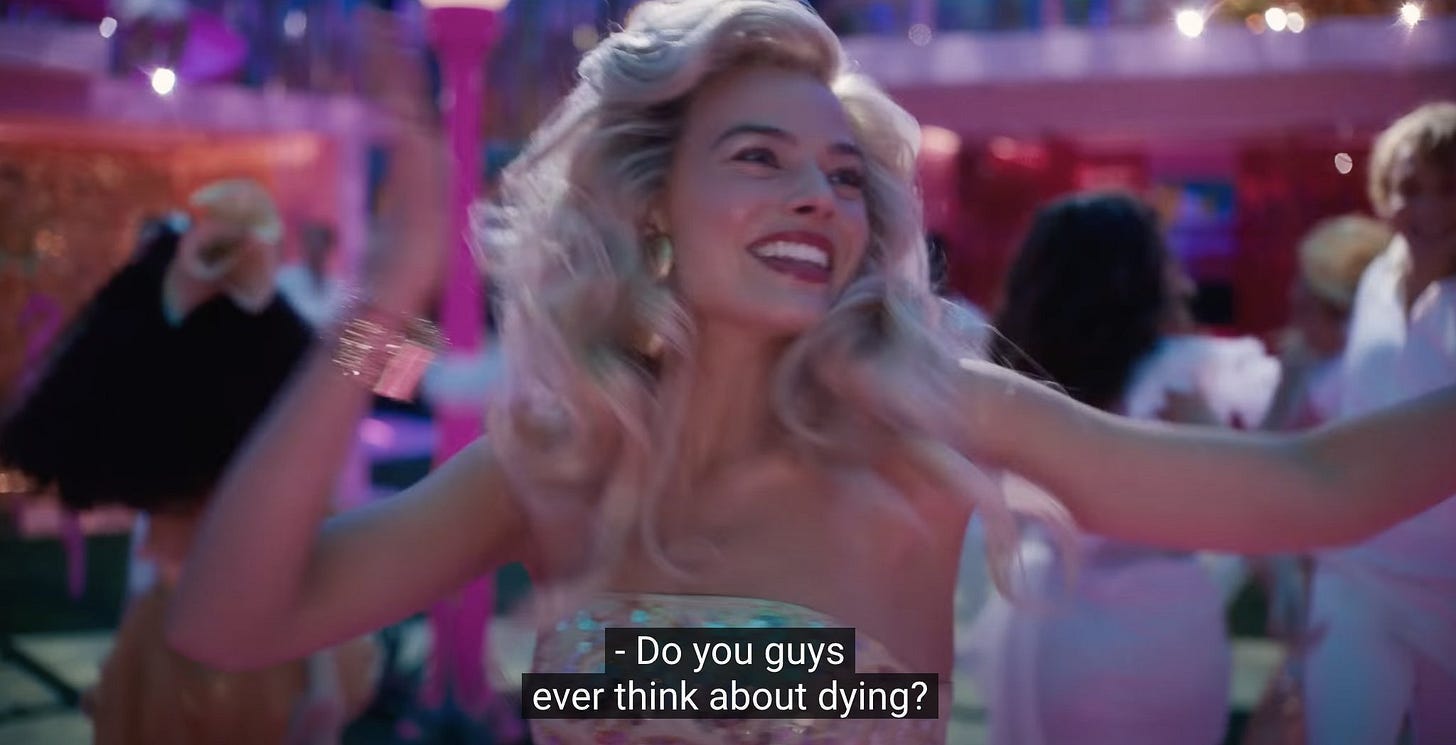
(Side note: sometimes I wonder if I fixated on this because literally every movie I watched in the ‘90s involved parents dying. Thanks, Disney!)
Even now, I want to cocoon myself from the idea of death and pain somehow. I was very good at it. And then, our friend died in an accident, and I had to face up to it. That one day you can be there, and the next day, you can be gone. Tomorrow is not a given. There is a lot in life that you can’t control. You can’t stop death. You can’t stop heartbreak. You can’t stop your loved ones from having sad feelings. There’s something peaceful about learning to live alongside all that.
God. We’ve gone down a dark path, haven’t we. Sorry. Look, I’m wary of anything - mysticism, religion, philosophical schools of thought - that tries to convince me that it has the complete answer to everything. I’ve realised that not allowing myself to think about stuff is not the same thing as actually processing and dealing with stuff; I’m finding freedom in letting myself feel sad, sometimes, because I should have felt it at the time, but I didn’t. I’m not sure how that fits alongside Stoicism. I’ll keep learning in a cautious sort of way.
The point is that acceptance is powerful. Even if it hurts. As Riley, I should have let the obvious ending happen, even if it felt sad. As Alex, I should have let my friend feel her emotions, freely, rather than interfering. Sometimes bad things happen, and you can’t prevent it, even in video games. You just have to let things be. Pain will be part of your character’s story, as it will be part of yours.
However! In the interests of balance, let me tell you about a time in which I absolutely should have interfered in a game. It was a while ago, sometime before the kids came along. We have traditionally played the Silent Hill games by pulling an all-nighter, and I firmly advocate for this method. Something about sleepless delirium really adds to the horror of wandering around the Otherworld.
Anyway, Chris and I went to our friend Adam’s house to play Silent Hill: Homecoming. I remember being fairly hyped. Silent Hill again! Yes! We were going to beat this game in one mad, glorious sitting.
At one point, the main character, Alex, finds his mother. She’s strung up to a weird machine, and she begs to be killed. Begs him to let her go.
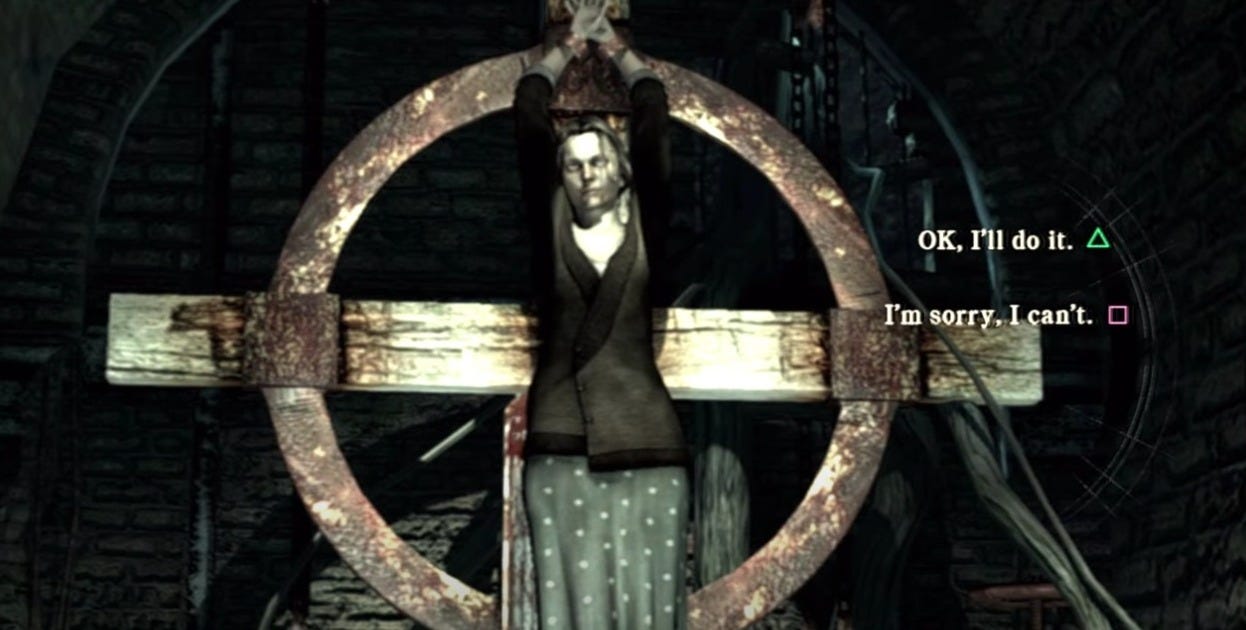
The three of us had a conversation. I don’t know if it was the fact that Alex had already been through so much trauma. Or that we felt it would be best for his character. Maybe it was the lateness of the hour. We came to a unanimous decision: we would not make him kill his own mother. It would burden him in a way that he really didn’t need. Taking her life would destroy him.
Anyway. We made our choice, and another choice involving Alex’s father. Both were wrong. Alex’s mother was ripped apart by a horrible torture machine, and we got the UFO ending.
That’s right: on our first playthrough, we got the fucking UFO ending. We watched, exhausted and furious, as Alex and his friend Elle were abducted by aliens. I’m talking sucked up into the light by little green men.
THAT IS BAD GAME DESIGN. I’m sorry but you should not be able to trigger the stupid joke ending that easily. You should have to, I don’t know, find an issue of Fortean Times and hand it over to a shady-looking conspiracy theorist after solving a series of puzzles to get to him. You should have to tell the game, Hey! You know aliens? I’m up for aliens being the ending if you wanna go for it. And only then should you be able to trigger that ending.
I’m not saying I’m still angry or anything, but I’m also saying that tired people should not blunder into a silly ending to a horror game at three in the morning. Do you see what I mean? I’m saying that it shouldn’t have happened. I’m saying that that wasn’t our fault and that, yes, admittedly, it would have been kinder to kill Alex’s mother so she didn’t suffer, but we were so tired. It was different, the bad endings to Oxenfree II and LIS: True Colours. I deserved those endings. We didn’t deserve this.
I’ve lost my train of thought. What am I talking about? Letting things happen? I could probably wrap this up by saying that it was better that we got the shit ending because now we have a funny memory to look back on. I could say that I’m endlessly glad that we spent so much of our twenties dicking around with friends. I could say that I am learning, through Stoicism, to accept stuff.
I could say that I accept that time will pass and that I am getting older, and I will never get those long, empty days of youth back. I accept that I miss some old friends because our lives are stupidly busy now, and I accept that life goes by in a flash. I accept that I sometimes make terrible decisions out of fear or misguided attempts at showing love. I also accept that some video games worm their way into my heart and stay there because they are beautifully constructed, and some worm their way into my heart even though they’re a bit ‘meh’ because of the people I played them with. I accept that I should tell my friends that I love them more often.
But mostly, I want to warn you not to do what we did if you’re going to play Homecoming. Kill the mother! Fuck Alex’s trauma, nobody comes out of Silent Hill with their sanity intact anyway. That’s the message I want to convey here. Alright? And I’ll keep working on the Stoicism thing, I guess. But kill Alex’s mother, that’s the main point.



